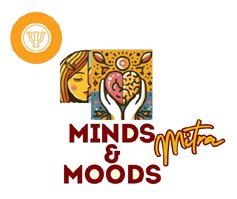Coping with the Pressure: A Guide to Stress Reduction Counselling
Life in the modern world is a constant balancing act. Juggling work, family, finances, and personal commitments can lead to overwhelming stress, a common struggle for many. When stress becomes chronic, it can impact our mental and physical well-being, leading to conditions like anxiety and depression. Stress reduction counselling is a proactive and effective way to manage these pressures and regain control of your life. It provides a safe space to understand your triggers, develop coping mechanisms, and build resilience. This form of Personal counselling can be a game-changer, helping you move from feeling helpless to empowered.
Meet Rrimi Bodalkar: A Compassionate Expert in Nagpur
For those in Nagpur seeking professional guidance, Rrimi Bodalkar is a highly recommended Sr. Psychotherapist / Mental Health Counsellor. Holding an M.A. in Psychology (Counselling) and a PGDMH (Clinical), she is also an NSDC Certified Psychometric Analysis & Learning Style Assessment specialist. Her expertise includes specializations in CBT, REBT, and DBT, making her adept at treating a wide range of issues from Mood disorder interventions and Personality development counselling to PTSD counselling and Trauma therapy. She is committed to providing personalized care and creating a supportive environment for individuals, couples, and families to address their mental health concerns.
Symptoms and Causes of Stress
Stress manifests differently in everyone, both physically and psychologically. Recognizing the signs is the first step toward seeking help.
Symptoms:
- Physical symptoms include headaches, muscle tension, fatigue, and digestive issues.
- Emotional symptoms can range from irritability and mood swings to feelings of being overwhelmed, anxious, or depressed.
- Behavioral symptoms may involve changes in sleep or eating patterns, social withdrawal, and increased use of substances like alcohol or tobacco.
- Cognitive symptoms include difficulty concentrating, memory problems, and constant negative thoughts.
Causes:
Stress can stem from various sources, including:
- Workplace stress such as demanding deadlines or difficult colleagues.
- Academic stress from exams or pressure to perform.
- Financial difficulties.
- Relationship issues, which can be addressed through Relationship counselling, Marriage counselling, or Couple therapy.
- Life transitions, like moving, changing jobs, or experiencing Grief and loss counselling.
How Stress Reduction Counselling Works
Stress reduction counselling is a collaborative process between you and a trained professional, such as a Psychotherapist, Mental Health Counsellor, or Psychologist. The treatment procedure often begins with an initial assessment to understand your unique stressors and symptoms.
The counsellor will then use evidence-based therapeutic approaches to help you manage and reduce stress. Some common therapies include:
- Cognitive Behavioral Therapy (CBT): This approach helps you identify and challenge Negative thinking patterns that contribute to stress. It focuses on how your thoughts, feelings, and behaviors are interconnected, helping you develop healthier responses.
- Rational Emotive Behavior Therapy (REBT): Similar to CBT, REBT helps you recognize and dispute irrational beliefs that lead to emotional distress and stress.
- Dialectical Behavior Therapy (DBT): This therapy teaches skills in mindfulness, emotional regulation, distress tolerance, and interpersonal effectiveness. It is particularly helpful for managing intense emotions and improving relationships.
- Behavioral therapy: This type of therapy focuses on changing specific behaviors that contribute to stress, such as avoidance or procrastination.
Through these therapies, you can learn skills like relaxation techniques, time management, and effective communication, all of which contribute to Confidence building and a better ability to handle pressure.
Frequently Asked Questions (FAQs)
Q1: What’s the difference between a Psychotherapist, a Counsellor, and a Psychologist?
A: While the terms are often used interchangeably, a Psychologist typically holds a doctoral degree and can perform specialized evaluations like Neuropsychological testing, IQ testing, Personality assessment, and Autism spectrum evaluation. A Psychotherapist or Mental Health Counsellor usually has a master’s degree and provides therapy and guidance.
Q2: Can counselling help with specific types of stress, like work or academic pressure?
A: Absolutely. Specialized counselling services like Workplace stress counselling and Academic stress psychologist sessions are tailored to address the unique challenges of those environments.
Q3: Is stress reduction counselling only for people with severe mental health issues?
A: No. Counselling is beneficial for anyone experiencing stress, regardless of its severity. It’s a proactive tool for personal growth, Confidence building, and skill development, helping you prevent stress from escalating into more serious conditions like burnout or depression.
Q4: Can a counsellor help with anger?
A: Yes, Anger management counselling is a specific area where therapists can help you identify the root causes of anger and develop healthy coping strategies to manage it effectively.
Q5: What about specialized support for children and parents?
A: There are specialists like a Child psychologist who can assist with issues like ADHD testing and provide Support for special needs children. Additionally, Parenting support counsellor services are available to help parents navigate the challenges of raising children.

